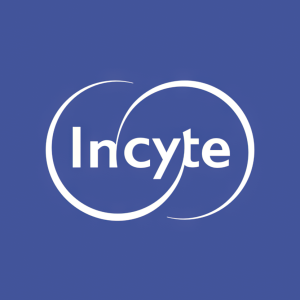Incyte Announces Approval of Pemazyre® (pemigatinib) in Japan for the Treatment of Patients with Unresectable Biliary Tract Cancer (BTC) with a Fibroblast Growth Factor Receptor 2 (FGFR2) Fusion Gene, Worsening After Cancer Chemotherapy
Incyte (Nasdaq:INCY) today announced that the Japanese Ministry of Health, Labour and Welfare (MHLW) has approved Pemazyre® (pemigatinib), a selective fibroblast growth factor receptor (FGFR) inhibitor, for the treatment of patients with unresectable biliary tract cancer (BTC) with a fibroblast growth factor receptor 2 (FGFR2) fusion gene1, worsening after cancer chemotherapy.
“The MHLW approval of Pemazyre is an important milestone for the BTC community, and underscores our commitment to finding and delivering solutions for patients with significant unmet medical needs,” said Lothar Finke, M.D., Ph.D., General Manager, Incyte Asia. “BTC is a rare and serious condition, and we are proud that with the support of the MHLW we will be able to bring a new targeted treatment to more patients around the world.”
BTC is a rare cancer that forms in the bile duct. Cholangiocarcinoma, a subtype of BTC, is classified based on its origin: intrahepatic, which occurs in the bile duct inside the liver and extrahepatic, which occurs in the bile duct outside the liver. Patients with BTC are often diagnosed at a late or advanced stage when the prognosis is poor2,3. FGFR2 fusions or rearrangements, which occur almost exclusively in intrahepatic cholangiocarcinoma, are observed in a small percentage of Japanese patients with BTC4,5,6,7.
The approval is based on data from the FIGHT-202 study evaluating the safety and efficacy of pemigatinib in adult patients with previously treated, locally advanced or metastatic cholangiocarcinoma with documented FGF/FGFR status. In FIGHT-202 patients harboring FGFR2 fusions or rearrangements (Cohort A), Pemazyre monotherapy resulted in an overall response rate of
Previously, the MHLW granted Orphan Drug Designation for Pemazyre – a designation granted to investigational compounds intended to treat rare diseases that affect fewer than 50,000 people in Japan, and for which there is a high medical need8. Designated orphan drugs are eligible for priority review for marketing authorizations to ensure supply to clinical settings at the earliest opportunity8.
About FIGHT-202
The FIGHT-202 Phase 2, open-label, multicenter study (NCT02924376) is evaluating the safety and efficacy of pemigatinib – a selective fibroblast growth factor receptor (FGFR) 1, 2, 3 inhibitor – in adult (age ≥ 18 years) patients with previously treated, locally advanced or metastatic cholangiocarcinoma with documented FGF/FGFR status.
Patients were enrolled into one of three cohorts – Cohort A (FGFR2 fusions or rearrangements), Cohort B (other FGF/FGFR genetic alterations) or Cohort C (no FGF/FGFR genetic alterations). All patients received 13.5 mg pemigatinib orally once daily (QD) on a 21-day cycle (two weeks on/one week off) until radiological disease progression or unacceptable toxicity.
The primary endpoint of FIGHT-202 is overall response rate (ORR) in Cohort A, assessed by independent review per RECIST v1.1. Secondary endpoints include ORR; progression free survival (PFS), overall survival (OS), duration of response (DOR), disease control rate (DCR) and safety in all cohorts.
For more information about FIGHT-202, visit https://clinicaltrials.gov/ct2/show/NCT02924376.
About FIGHT
The FIGHT (FIbroblast Growth factor receptor in oncology and Hematology Trials) clinical trial program includes ongoing Phase 2 and 3 studies investigating safety and efficacy of pemigatinib therapy across several FGFR-driven malignancies. Phase 2 monotherapy studies include FIGHT-202, as well as FIGHT-201 investigating pemigatinib in patients with metastatic or surgically unresectable bladder cancer, including with activating FGFR3 mutations or fusions/rearrangements; FIGHT-203 in patients with myeloproliferative neoplasms with activating FGFR1 fusions/rearrangements; FIGHT-207 in patients with previously treated, locally-advanced/metastatic or surgically unresectable solid tumor malignancies harboring activating FGFR mutations or fusions/rearrangements, irrespective of tumor type.
FIGHT-302 is a Phase 3 study investigating pemigatinib as a first-line treatment for patients with cholangiocarcinoma with FGFR2 fusions or rearrangements.
About Pemazyre® (pemigatinib)
Pemazyre is a kinase inhibitor indicated in the United States for the treatment of adults with previously treated, unresectable locally advanced or metastatic cholangiocarcinoma with a fibroblast growth factor receptor 2 (FGFR2) fusion or other rearrangement as detected by an FDA-approved test9. This indication is approved under accelerated approval based on overall response rate and duration of response. Continued approval for this indication may be contingent upon verification and description of clinical benefit in a confirmatory trial(s).
In Japan, Pemazyre is approved for the treatment of patients with unresectable biliary tract cancer (BTC) with a fibroblast growth factor receptor 2 (FGFR2) fusion gene, worsening after cancer chemotherapy.
Pemazyre is a potent, selective, oral inhibitor of FGFR isoforms 1, 2 and 3 which, in preclinical studies, has demonstrated selective pharmacologic activity against cancer cells with FGFR alterations.
Pemazyre is marketed by Incyte in the United States and will be marketed by Incyte in Japan. Incyte has granted Innovent Biologics, Inc. rights to develop and commercialize pemigatinib in hematology and oncology in Mainland China, Hong Kong, Macau and Taiwan. Incyte has retained all other rights to develop and commercialize pemigatinib outside of the United States.
Additionally, the European Medicines Agency's (EMA) Committee for Medicinal Products for Human Use (CHMP) has issued a positive opinion recommending the conditional marketing authorization of pemigatinib for the treatment of adults with locally advanced or metastatic cholangiocarcinoma with a fibroblast growth factor receptor 2 (FGFR2) fusion or rearrangement that have progressed after at least one prior line of systemic therapy.
Pemazyre is a trademark of Incyte Corporation.
About Incyte
Incyte is a Wilmington, Delaware-based, global biopharmaceutical company focused on finding solutions for serious unmet medical needs through the discovery, development and commercialization of proprietary therapeutics. For additional information on Incyte, please visit Incyte.com and follow @Incyte.
For more information on Incyte Biosciences Japan G.K., please visit Incyte.jp.
Forward-Looking Statements
Except for the historical information set forth herein, the matters set forth in this press release, including statements regarding whether and/or when Pemazyre might provide a treatment option for patients with FGFR2 fusion positive locally advanced or metastatic cholangiocarcinoma, and further development of pemigatinib, contain predictions, estimates, and other forward-looking statements.
These forward-looking statements are based on the Company’s current expectations and subject to risks and uncertainties that may cause actual results to differ materially, including unanticipated developments in and risks related to: unanticipated delays; further research and development and the results of clinical trials possibly being unsuccessful or insufficient to meet applicable regulatory standards or warrant continued development; the ability to enroll sufficient numbers of subjects in clinical trials and the ability to enroll subjects in accordance with planned schedules; the effects of the COVID-19 pandemic and measures to address the pandemic on the Company’s clinical trials, supply chain and other third-party providers and development and discovery operations; determinations made by the FDA, EMA, PMDA or MHLW and other regulatory authorities; the Company’s dependence on its relationships with its collaboration partners;;the efficacy or safety of the Company’s products and the products of the Company’s collaboration partners; the acceptance of the Company’s products and the products of the Company’s collaboration partners in the marketplace; market competition; sales, marketing, manufacturing and distribution requirements; greater than expected expenses; expenses relating to litigation or strategic activities; and other risks detailed from time to time in the Company’s reports filed with the Securities and Exchange Commission, including its Form 10-K for the year ended December 31, 2020. The Company disclaims any intent or obligation to update these forward-looking statements.
Disclaimer
The drug information contained herein is intended for the disclosure of Incyte corporate information and is not intended to advertise or promote any medicinal product, including those under development.
1 In the approved Japanese indication, “fusion gene” includes both fusion genes and rearrangements.
2 Banales JM, et al. Nat Rev Gastroenterol Hepatol. 2016;13:261‒280.
3 Uhlig J, et al. Ann Surg Oncol. 2019;26:1993–2000.
4 Liver Cancer White Paper 2015. Japan Society of Hepatology.
5 Nakamura H, et al. Nat Genet. 2015;47:1003‒1010.
6 Jang H, et al. J Gastroenterol. 2020;26:6207–6223.
7 Japan Liver Cancer Study Group Follow-Up Survey Committee. The 20th National Primary Liver Cancer Follow-up Report (2008-2009). Liver. 2019;60: 258-293.
8 Overview of Orphan Drug/Medical Device Designation System. Ministry of Health, Labour and Welfare. Available at: https://www.mhlw.go.jp/stf/seisakunitsuite/bunya/0000068484.html.
9 Pemazyre(pemigatinib) [Package Insert]. Wilmington, DE: Incyte; 2020.
View source version on businesswire.com: https://www.businesswire.com/news/home/20210323005530/en/







